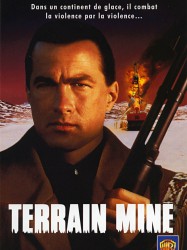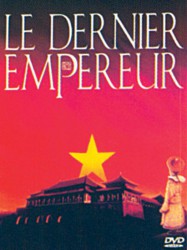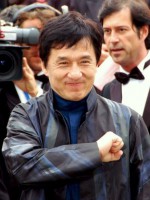Joan Chen est une Actrice, Réalisatrice, Ecrivain et Producteur exécutif Chinoise née le 26 avril 1961 à Shanghai (Chine)

Joan Chen (chinois simplifié : 陈冲 ; chinois traditionnel : 陳冲 ; pinyin : Chén Chōng) est une actrice, réalisatrice, productrice et scénariste sino-américaine née le 26 avril 1961 à Shanghai (Chine).
Chen Chong was born in Shanghai to a family of pharmacologists. She and her older brother, Chase, were raised during the Cultural Revolution. At the age of 14, Chen was discovered on the school rifle range by Jiang Qing, the wife of leader Mao Zedong and major Chinese Communist Party figure, as she was excelling at marksmanship. This led to her being selected for the Actors' Training Program by the Shanghai Film Studio in 1975, where she was discovered by veteran director Xie Jin who chose her to star in his 1977 film Youth (Chinese: 青春; pinyin: Qīngchūn) as a deaf mute whose senses are restored by an Army medical team. Chen graduated from high school a year in advance, and at the age of 17 entered the prestigious Shanghai International Studies University, where she majored in English.
Acting career
Chen Chong performed alongside Tang Guoqiang in Zhang Zheng's (Chinese: 张铮) Little Flower (Chinese: 小花; pinyin: Xiǎo Huā) in 1979, for which she won the Hundred Flowers Award (Chinese: 百花奖; pinyin: Bǎi Huā Jiǎng). Chen portrayed a pre-Maoist revolutionary's daughter, who, reunited with her brother, a wounded Communist soldier, later learned that his doctor was her biological mother. Little Flower was her second film and she soon achieved the status of China's most loved actress; she was dubbed "the Elizabeth Taylor of China" by Time magazine for having achieved stardom while still a teenager.
In addition, Chen was in the 1979 film Hearts for the Motherland (Chinese: 海外赤子; pinyin: Hǎiwài Chìzǐ). The film directed by Ou Fan (Chinese: 欧凡) and Xing Jitian (Chinese: 邢吉田) depicts an overseas Chinese family that returns to China from southeast Asia out of their patriotic feelings but encounter political troubles during the Cultural Revolution. The songs, "I Love You, China" (Chinese: 我爱你中国) and "High Flies the Petrel" (Chinese: 高飞的海燕), sung by Chen's character, are perennial favorites in China. In 1981, Chen starred in Awakening (Chinese: 甦醒; pinyin: Sūxǐng), directed by Teng Wenji (Chinese: 滕文骥).
At age 20, Chen moved to the United States, where she studied filmmaking at California State University, Northridge.
Her first Hollywood movie was Tai-Pan, filmed on location in China. She went on to star in Bernardo Bertolucci's The Last Emperor in 1987 and the David Lynch/Mark Frost television series Twin Peaks as Josie Packard. In 1993 she co-starred in Oliver Stone's Heaven & Earth. She portrayed two different characters in Clara Law's Temptation of a Monk (Chinese: 誘僧; pinyin: Yòu Sēng): a seductive princess of Tang dynasty, and a dangerous temptress. The award-winning film was adapted from a novel by Lilian Lee.
In 1994 she co-starred with Steven Seagal in the action/adventure On Deadly Ground; she then returned to Shanghai to star in Stanley Kwan's Red Rose, White Rose (Chinese: 紅玫瑰白玫瑰; pinyin: Hóng Méigui Bái Méigui) opposite Winston Chao, and subsequently won a Golden Horse Award and a Hong Kong Film Critics Society Award for her performance. In 1996, she was a member of the jury at the 46th Berlin International Film Festival.
Tired of being cast as an exotic beauty in Hollywood films, Chen moved into directing in 1998 with the critically acclaimed Xiu Xiu: The Sent Down Girl (Chinese: 天浴; pinyin: Tiān Yù), adapted from the novella Heavenly Bath (Chinese: 天浴; pinyin: Tiān Yù) by her friend Yan Geling. She later directed Autumn in New York, starring Richard Gere and Winona Ryder, in 2000.
In the middle of the 2000s, Chen made a comeback in acting and began to work intensely, alternating between English and Chinese-language roles.
In 2004, she starred in Hou Yong's family saga Jasmine Women (Chinese: 茉莉花开; pinyin: Mòlìhuā Kāi), alongside Zhang Ziyi, in which they played multiple roles as daughters and mothers across three generations in Shanghai. She also starred in the Asian American comedy Saving Face as a widowed mother, who is shunned by the Chinese-American community for being pregnant and unwed and therefore has come to live with her lesbian daughter.
In 2005, she appeared in Zhang Yang's family saga Sunflower (Chinese: 向日葵; pinyin: Xiàngrìkuí), as a mother whose husband and son have a troubled father-son relationship over 30 years. She then starred in the Asian American independent film Americanese and in Michael Almereyda's Tonight at Noon, the first part of a two part project, scheduled to be released in 2009
In 2007, Chen was acclaimed for her performance in Tony Ayres' drama The Home Song Stories. She portrayed a glamorous and unstable Chinese nightclub singer who struggles to survive in seventies Australia with her two children. Chen. The role earned her four awards including the Australian Film Institute Award for Best Actress and the Golden Horse Award for Best Actress. The same year saw her co-starring in two other acclaimed films: Ang Lee's Lust, Caution, opposite Tony Leung Chiu-Wai, and Jiang Wen's The Sun Also Rises, opposite Anthony Wong Chau-Sang, for which she received an Asian Film Award for Best Supporting Actress.
In 2008, she starred alongside Sam Chow (Chinese: 邹爽) in Shi Qi (Chinese: 十七; pinyin: Shíqī), directed by Joe Chow (Chinese: 姬诚; pinyin: Jī Chéng), as a rural mother of a 17-year-old in eastern Zhejiang province. The same year Joan Chen portrayed in Jia Zhangke's 24 City a factory worker once fancied because she resembled Chen herself in the 1979 film Little Flower, but who missed her chance at love.
She then co-starred in Bruce Beresford's 2009 adaptation of the autobiography of dancer Li Cunxin Mao's Last Dancer, along with Wang Shungbao and Kyle MacLachlan.
In 2009, Chen starred alongside Feng Yuanzheng (Chinese: 冯远征) and Liu Jinshan (Chinese: 刘金山) in the Chinese TV series Newcomers to the Middle-Aged (Chinese: 人到中年), directed by Dou Qi (Chinese: 斗琪), in which she played a female doctor facing middle-age problems. She also played the part of goddess Guan Yin in the 2010 Chinese TV adaptation of Journey to the West, directed by Cheng Lidong (Chinese: 程力栋).
In October 2009 Joan Chen was the curator of the first Singapore Sun Film Festival, whose theme was The Art of Living Well. She selected and curated five films for screening during the festival: The Diving Bell and the Butterfly, Dead Man Walking, Hannah and Her Sisters, Still Life (Chinese: 三峡好人; pinyin: Sānxiá hǎorén) and Edward Scissorhands.
In 2010, Chen joined the cast of Leehom Wang's directorial debut Lian ai tong gao (Chinese: 恋爱通告; pinyin: Liàn ài tōng gào)., Alexi Tan's Color Me Love (alongside Liu Ye), Ilkka Järvilaturi's Kiss, His First (alongside Tony Leung Ka-fai and Gwei Lun-mei) and veteran acting coach Larry Moss' Relative Insanity (along with Juliette Binoche). In May 2010, she was set to star and direct one of the three parts of the anthology film Seeing Red.
As of the 2011 episode 3.13 entitled "Immortality" she plays Secretary Bishop's girlfriend on the J.J. Abrams created sci-fi television series Fringe.
Chen was cast as the Yuan empress Chabi in the 2014 American television series Marco Polo. Being somewhat unfamiliar with the Mongols, Chen read The Secret History of the Mongol Queens in order to prepare for the role.
Source : Wikidata
Joan Chen

- Infos
- Photos
- Meilleurs films
- Famille
- Personnages
- Récompenses
Nom de naissance Chen Chong (陈冲)
Nationalité Chine
Naissance 26 avril 1961 (63 ans) à Shanghai (Chine)
Nationalité Chine
Naissance 26 avril 1961 (63 ans) à Shanghai (Chine)
Joan Chen (chinois simplifié : 陈冲 ; chinois traditionnel : 陳冲 ; pinyin : Chén Chōng) est une actrice, réalisatrice, productrice et scénariste sino-américaine née le 26 avril 1961 à Shanghai (Chine).
Biographie
Early life and careerChen Chong was born in Shanghai to a family of pharmacologists. She and her older brother, Chase, were raised during the Cultural Revolution. At the age of 14, Chen was discovered on the school rifle range by Jiang Qing, the wife of leader Mao Zedong and major Chinese Communist Party figure, as she was excelling at marksmanship. This led to her being selected for the Actors' Training Program by the Shanghai Film Studio in 1975, where she was discovered by veteran director Xie Jin who chose her to star in his 1977 film Youth (Chinese: 青春; pinyin: Qīngchūn) as a deaf mute whose senses are restored by an Army medical team. Chen graduated from high school a year in advance, and at the age of 17 entered the prestigious Shanghai International Studies University, where she majored in English.
Acting career
Chen Chong performed alongside Tang Guoqiang in Zhang Zheng's (Chinese: 张铮) Little Flower (Chinese: 小花; pinyin: Xiǎo Huā) in 1979, for which she won the Hundred Flowers Award (Chinese: 百花奖; pinyin: Bǎi Huā Jiǎng). Chen portrayed a pre-Maoist revolutionary's daughter, who, reunited with her brother, a wounded Communist soldier, later learned that his doctor was her biological mother. Little Flower was her second film and she soon achieved the status of China's most loved actress; she was dubbed "the Elizabeth Taylor of China" by Time magazine for having achieved stardom while still a teenager.
In addition, Chen was in the 1979 film Hearts for the Motherland (Chinese: 海外赤子; pinyin: Hǎiwài Chìzǐ). The film directed by Ou Fan (Chinese: 欧凡) and Xing Jitian (Chinese: 邢吉田) depicts an overseas Chinese family that returns to China from southeast Asia out of their patriotic feelings but encounter political troubles during the Cultural Revolution. The songs, "I Love You, China" (Chinese: 我爱你中国) and "High Flies the Petrel" (Chinese: 高飞的海燕), sung by Chen's character, are perennial favorites in China. In 1981, Chen starred in Awakening (Chinese: 甦醒; pinyin: Sūxǐng), directed by Teng Wenji (Chinese: 滕文骥).
At age 20, Chen moved to the United States, where she studied filmmaking at California State University, Northridge.
Her first Hollywood movie was Tai-Pan, filmed on location in China. She went on to star in Bernardo Bertolucci's The Last Emperor in 1987 and the David Lynch/Mark Frost television series Twin Peaks as Josie Packard. In 1993 she co-starred in Oliver Stone's Heaven & Earth. She portrayed two different characters in Clara Law's Temptation of a Monk (Chinese: 誘僧; pinyin: Yòu Sēng): a seductive princess of Tang dynasty, and a dangerous temptress. The award-winning film was adapted from a novel by Lilian Lee.
In 1994 she co-starred with Steven Seagal in the action/adventure On Deadly Ground; she then returned to Shanghai to star in Stanley Kwan's Red Rose, White Rose (Chinese: 紅玫瑰白玫瑰; pinyin: Hóng Méigui Bái Méigui) opposite Winston Chao, and subsequently won a Golden Horse Award and a Hong Kong Film Critics Society Award for her performance. In 1996, she was a member of the jury at the 46th Berlin International Film Festival.
Tired of being cast as an exotic beauty in Hollywood films, Chen moved into directing in 1998 with the critically acclaimed Xiu Xiu: The Sent Down Girl (Chinese: 天浴; pinyin: Tiān Yù), adapted from the novella Heavenly Bath (Chinese: 天浴; pinyin: Tiān Yù) by her friend Yan Geling. She later directed Autumn in New York, starring Richard Gere and Winona Ryder, in 2000.
In the middle of the 2000s, Chen made a comeback in acting and began to work intensely, alternating between English and Chinese-language roles.
In 2004, she starred in Hou Yong's family saga Jasmine Women (Chinese: 茉莉花开; pinyin: Mòlìhuā Kāi), alongside Zhang Ziyi, in which they played multiple roles as daughters and mothers across three generations in Shanghai. She also starred in the Asian American comedy Saving Face as a widowed mother, who is shunned by the Chinese-American community for being pregnant and unwed and therefore has come to live with her lesbian daughter.
In 2005, she appeared in Zhang Yang's family saga Sunflower (Chinese: 向日葵; pinyin: Xiàngrìkuí), as a mother whose husband and son have a troubled father-son relationship over 30 years. She then starred in the Asian American independent film Americanese and in Michael Almereyda's Tonight at Noon, the first part of a two part project, scheduled to be released in 2009
In 2007, Chen was acclaimed for her performance in Tony Ayres' drama The Home Song Stories. She portrayed a glamorous and unstable Chinese nightclub singer who struggles to survive in seventies Australia with her two children. Chen. The role earned her four awards including the Australian Film Institute Award for Best Actress and the Golden Horse Award for Best Actress. The same year saw her co-starring in two other acclaimed films: Ang Lee's Lust, Caution, opposite Tony Leung Chiu-Wai, and Jiang Wen's The Sun Also Rises, opposite Anthony Wong Chau-Sang, for which she received an Asian Film Award for Best Supporting Actress.
In 2008, she starred alongside Sam Chow (Chinese: 邹爽) in Shi Qi (Chinese: 十七; pinyin: Shíqī), directed by Joe Chow (Chinese: 姬诚; pinyin: Jī Chéng), as a rural mother of a 17-year-old in eastern Zhejiang province. The same year Joan Chen portrayed in Jia Zhangke's 24 City a factory worker once fancied because she resembled Chen herself in the 1979 film Little Flower, but who missed her chance at love.
She then co-starred in Bruce Beresford's 2009 adaptation of the autobiography of dancer Li Cunxin Mao's Last Dancer, along with Wang Shungbao and Kyle MacLachlan.
In 2009, Chen starred alongside Feng Yuanzheng (Chinese: 冯远征) and Liu Jinshan (Chinese: 刘金山) in the Chinese TV series Newcomers to the Middle-Aged (Chinese: 人到中年), directed by Dou Qi (Chinese: 斗琪), in which she played a female doctor facing middle-age problems. She also played the part of goddess Guan Yin in the 2010 Chinese TV adaptation of Journey to the West, directed by Cheng Lidong (Chinese: 程力栋).
In October 2009 Joan Chen was the curator of the first Singapore Sun Film Festival, whose theme was The Art of Living Well. She selected and curated five films for screening during the festival: The Diving Bell and the Butterfly, Dead Man Walking, Hannah and Her Sisters, Still Life (Chinese: 三峡好人; pinyin: Sānxiá hǎorén) and Edward Scissorhands.
In 2010, Chen joined the cast of Leehom Wang's directorial debut Lian ai tong gao (Chinese: 恋爱通告; pinyin: Liàn ài tōng gào)., Alexi Tan's Color Me Love (alongside Liu Ye), Ilkka Järvilaturi's Kiss, His First (alongside Tony Leung Ka-fai and Gwei Lun-mei) and veteran acting coach Larry Moss' Relative Insanity (along with Juliette Binoche). In May 2010, she was set to star and direct one of the three parts of the anthology film Seeing Red.
As of the 2011 episode 3.13 entitled "Immortality" she plays Secretary Bishop's girlfriend on the J.J. Abrams created sci-fi television series Fringe.
Chen was cast as the Yuan empress Chabi in the 2014 American television series Marco Polo. Being somewhat unfamiliar with the Mongols, Chen read The Secret History of the Mongol Queens in order to prepare for the role.
Ses meilleurs films
Le plus souvent avec
Filmographie de Joan Chen (45 films)
Actrice

Ava (2020)
Réalisé par Tate Taylor
Origine Etats-Unis
Genres Drame, Thriller, Action, Aventure, Policier
Acteurs Jessica Chastain, Colin Farrell, John Malkovich, Diana Silvers, Geena Davis, Common
Rôle Toni
Note55%





Une femme assasin du nom de Eve travaille pour une importante organisation secrète. Elle parcourt le monde. Une de ses missions se passe mal, elle va être contrainte de lutter pour sa propre survie.

Sheep Without a Shepherd (2019)
, 1h52Origine Chine
Genres Drame, Policier
Acteurs Joan Chen, Paul Chun
Rôle La Wen
Note68%





Un homme essaie de couvrir le meurtre du fils d'un policier par sa fille.

王朝的女人·杨贵妃 (2015)
Réalisé par Tian Zhuangzhuang, Zhang Yimou
Genres Guerre, Historique, Romance
Acteurs Fàn Bīngbīng (范冰冰), Leon Lai, Joan Chen, Shun Oguri, Sam Voutas, Wen Zhang
Rôle Consort Wu
Note43%






何以笙箫默 (2015)
, 1h47Genres Drame, Romance
Acteurs Huang Xiaoming, Yang Mi, Angelababy, Z.Tao, Joan Chen, Sui He
Note3%






For Love Or Money (2014)
, 1h38Genres Romance
Acteurs Rain, Liu Yifei, Joan Chen, Tiffany Tang, Andy On, Sun Haiying
Rôle Xu's mother
Note53%





Xu Cheng Xun (Bi Rain) est le fils d'un magnat, mais il a son propre rêve : celui d'être peintre.Il ne veut pas hériter de l'entreprise de sa famille et se contente d'être un pauvre artiste.Lu Xing (Crystal Liu) vient d'une noble famille d'aristocrate mais est devenue hôtesse de l'air afin de subvenir à ses besoins.Profondément trahie par l'homme qu'elle aimait ... Elle ne croit plus en l'amour. Tout change le jour où Lu Xing fait la connaissance de Xu Cheng Xun.

White Frog (2013)
, 1h33Réalisé par Quentin Lee
Origine Etats-Unis
Genres Drame
Thèmes Maladie, Sexualité, Homosexualité, Folie, Le handicap, L'autisme, LGBT, LGBT
Acteurs Booboo Stewart, Harry Shum Jr., Tyler Posey, B.D. Wong, Gregg Sulkin, Joan Chen
Rôle Irene Young
Note67%





Nick Young (Booboo Stewart), un adolescent d'environ 15 ans, négligé, porteur du syndrome d'Asperger, est sur le point d'avoir sa vie changée à jamais quand la tragédie frappe sa famille.

Double Xposure (2012)
, 1h45Genres Drame, Thriller, Policier
Acteurs Fàn Bīngbīng (范冰冰), Joan Chen, Liang Jing
Rôle Dr. Hao
Note55%





When Song Qi stumbles upon her boyfriend, Liu Dong's (Feng Shaofeng) affair with her best friend, Xiaoxi (Huo Siyan), her life quickly starts falling apart and she is subsequently drawn into revenge and murder. Though all is not as it seems and Song Qi will have to embark on a twisted journey into her past and the very depths of her own mind.

Hemingway and Gellhorn (2012)
, 2h34Réalisé par Philip Kaufman
Origine Etats-Unis
Genres Drame, Biographie, Romance
Thèmes La mer, Transport, Politique
Acteurs Nicole Kidman, Clive Owen, David Strathairn, Brooke Adams, Molly Parker, Connie Nielsen
Rôle Madame Chiang
Note62%





Traitant de l'histoire amoureuse d'un des plus célèbres couples d'écrivains, le film débute sur Martha Gellhorn, alors âgée, racontant sa vie lors d'une interview... En 1936, ils se voient pour la première fois à l'occasion d'une rencontre fortuite dans un bar à Key West en Floride. Ils se rencontrèrent de nouveau un an après en Espagne, dans le même hôtel Florida à Madrid et au même étage, alors que tous deux couvraient l'actualité de la guerre civile espagnole, en qualité de correspondants de guerre pour la presse américaine, lui pour la "NANA" - North American News Association -

1911 : Révolution (2011)
, 2h2Réalisé par Jackie Chan, Tang Guoqiang
Origine Chine
Genres Drame, Guerre, Action, Aventure, Historique
Thèmes Sport, Arts martiaux, Kung-fu
Acteurs Jackie Chan, Li Bingbing (李冰冰), Winston Chao, Joan Chen, Jaycee Chan, Hu Ge
Rôle Empress Dowager Longyu
Note57%





En 1911, la Chine impériale s'effondre et son dernier empereur, Pu Yi est destitué. Remplacé par Sun Yat Sen (Winston Chao) comme chef de l'État, le film raconte l'histoire de Huang Xing (Jackie Chan).
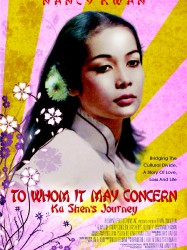 , 1h48
, 1h48Réalisé par Brian Jamieson
Genres Documentaire
Thèmes Maladie, La télévision, Documentaire sur le monde des affaires, Documentaire sur le cinéma, Documentaire sur une personnalité, Documentaire sur la santé, Sida
Acteurs Nancy Kwan, Joan Chen, Bey Logan, France Nuyen, Vivian Wu, Ross Hagen
Rôle Elle-même
Note70%





The film largely proceeds chronologically with Kwan serving both as the person being interviewed and as the narrator. Her colleagues in Hollywood were generally interviewed in Los Angeles. Her family members and companions in her youth were interviewed in Hong Kong.

Love in Disguise (2010)
Genres Comédie, Comédie romantique, Romance
Acteurs Liu Yifei, Joan Chen
Rôle Joan
Note56%





Célèbre depuis sa plus tendre enfance, Minghan a connu que les strass de la belle vie. En dépit des paillettes, il ne cherche qu'une chose, vivre une véritable histoire d'amour. En revenant d'un concert, son chauffeur percute une jeune fille, Song Xiaoqing, étudiante au conservatoire. Celle-ci vérifie si son instrument n'est pas cassé en jouant un air et Minghan tombe immédiatement sous le charme de la mélodie. Il décide alors de se déguiser et de s'infiltrer au conservatoire avec son ami et musicien Wei Zhi, afin d'approcher la jolie inconnue...

Mao's Last Dancer (2009)
, 1h57Réalisé par Bruce Beresford
Genres Drame, Biographie, Romance
Thèmes Danse
Acteurs Bruce Greenwood, Kyle MacLachlan, Joan Chen, Amanda Schull, Penne Hackforth-Jones, Jack Thompson
Rôle Niang
Note72%





1961. Li, onze ans, vit avec ses parents et ses six frères dans la province chinoise pauvre du Shandong. Un jour, des recruteurs de l'académie de danse de Madame Mao arrivent de Pékin à la recherche de nouvelles recrues afin d'en faire les futures étoiles de la Révolution Culturelle. Le jeune garçon est sélectionné et va devoir suivre une formation artistique et idéologique très rigoureuse...
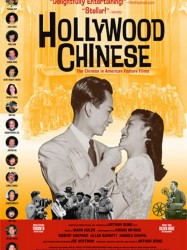
Hollywood Chinese (2008)
, 1h29Réalisé par Arthur Dong
Origine Etats-Unis
Genres Documentaire, Historique
Thèmes Documentaire sur le monde des affaires, Documentaire sur le cinéma, Documentaire sur les villes
Acteurs Turhan Bey, Ang Lee, Joan Chen, Nancy Kwan, Christopher Lee, Tsai Chin
Rôle Elle-même
Note76%





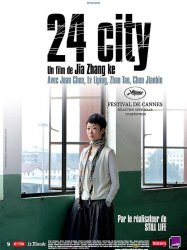
24 City (2008)
, 1h52Réalisé par Jia Zhang-ke (贾樟柯)
Genres Drame, Documentaire
Acteurs Joan Chen, Zhao Tao, Lü Liping, Chen Jianbin
Rôle petite fleur
Note70%





Une cité ouvrière est détruite au profit d’un complexe d’appartements de luxe.

The Leap Years (2008)
Origine Singapour
Genres Romance
Acteurs Ananda Everingham, Wong Li Lin, Joan Chen, Vernetta Lopez
Rôle Li-Ann (age 48)
Note60%





Li-Ann, a single and attractive teacher in a Singaporean girl's school teaches her students about an obscure leap year custom practiced in Ireland, where men cannot refuse a proposal or date from a woman should she do so on February 29; she chances upon Jeremy at Windows Cafe who becomes a major part of her life.
 Connexion
Connexion

